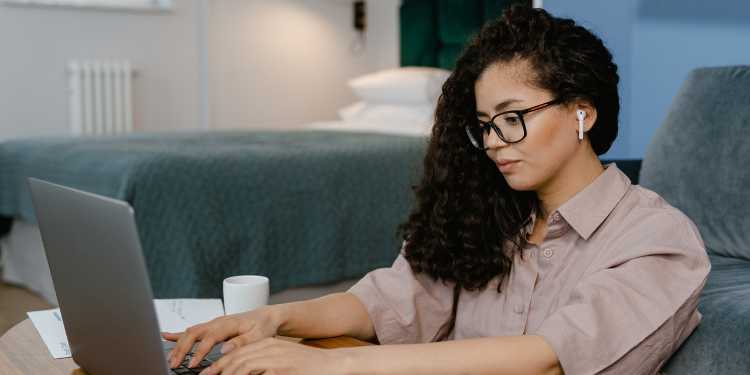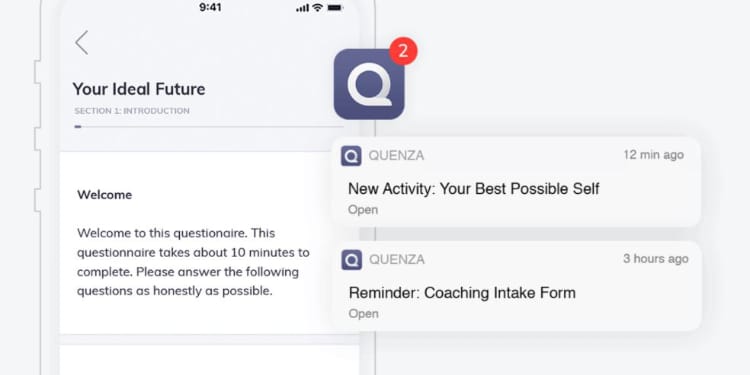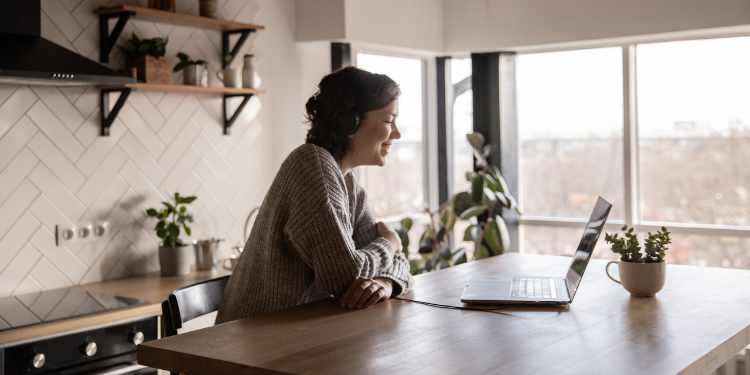










When you go into a therapy session, it’s best to prepare so you can get the most out of your experience. With in-person therapy, that means knowing the location of your therapist’s office and giving yourself enough time to get there. You might also want to let your family and co-workers know not to call during your session.

With online counseling, you may not need to worry about transportation, but there are things you can do to take full advantage of the precious time you have with your therapist. This, of course, is in addition to the standard mental preparations you should make before therapy, regardless of the format. Here are some ways you can prepare for an online counseling session to make the most of it:
I use the word computer because it’s best to use a laptop or desktop computer for a counseling session. Phones and tablets have small screens and may not have a stable base. It is crucial to check if the mic and video are working. You may need to give specific permissions to use them on the video conferencing platform installed. Technology is often a blessing but—when it doesn’t work—it is truly a curse. It may be helpful to do a test run beforehand, especially if it’s your first session. Also, if you are using a laptop, make sure it is fully charged. Losing power or having to run around to find the charging cord is not the best way to optimize your therapy experience.
When a therapist sends you a link for a virtual counseling session, you need to make sure you have downloaded the platform they are using. The link alone does not guarantee you will be able to use it. For example, if it is a Zoom link you need to make sure you have Zoom downloaded on your computer. Otherwise, you will click on the link and nothing will happen.
Your video call is only as good as your internet connection. If you want your session to be secure and confidential, you need to be using a private Wi-Fi connection. Public connections can be easily hacked and are often unreliable. Since even private Wi-Fi connections fail, it is always a good idea to have a backup. Although not ideal, being able to have your session on a phone when you’re in a pinch is a better alternative than not having it at all.
If you are alone in your home, then you likely don’t need to worry about whether or not you can hear your therapist well enough. But, many people don’t have the luxury of being by themselves when they are receiving therapy. Using headphones is a great way to block out other sounds and also ensures privacy. If you are worried about prying ears, turn on some white noise outside the room where you are having the session to drown out the sound of your voices.
Find a comfortable place devoid of distractions. This is your therapy time. The last thing you need is to be distracted by other people, texts, or calls. That may mean thinking outside the box a bit. I have seen people have sessions in their car, for instance, since it was the only place they could have privacy. If you are in your house and other people are around, make sure they know you are not to be disturbed for the next hour.
The other part of preventing distractions is to shut down technology. It is hard to focus when you have your phone nearby or other windows open on your computer. As a solution, you can put your phone into “do not disturb” mode and shut down open apps. A distraction most people don’t think about is the view of yourself that pops up during video conferencing. It is amazing how distracting it can be to watch yourself during a session. Do yourself a favor and turn off that self-view so you can focus on your therapy.
One disadvantage of virtual therapy is that the therapist cannot see your body language. Because we express a lot of our thoughts and feelings through our bodies, it can be difficult for a counselor to interpret how we are feeling. Even facial expressions can be hard to see if the video feed is not entirely clear. Although therapy is not the place to be concerned with how you look, it helps to have decent lighting. Proper lighting will allow your therapist to be better able to see your face.
As a client, it is up to you to make up for some of the visual deficits of virtual therapy. Be as clear as you can when you are verbally expressing emotions. You may want to go into more detail than you normally would so you can give your therapist a better idea of how you are feeling.
Remember all those things you thought about during the week that you wanted to talk about in therapy? Then, sometimes you start your session and none of them come to mind. That problem can be solved by writing down relevant topics before your session begins. This is a good idea for all counseling, whether in-person or virtual, but it’s even easier to access with teletherapy. A quick glance at your “cheat sheet” can be accomplished without your therapist even knowing you are doing it.
When you go to a traditional counseling session, there are certain things you may do that you don’t think about when you engage in virtual therapy. For example, you probably try to go to the bathroom before you leave the house. That may not come to mind when you are staying at home, but you still need to do it or risk interrupting the session.
A therapist will also likely have certain things in the office that you might take for granted, such as tissues, water, coffee, or a piece of paper. Since you are not leaving your home, you will need to remember to provide those items for yourself if you want to have them. Therapist offices also usually have a couch or comfortable chairs. You will need to make sure you have a comfortable set-up wherever you live. Hint: back support is key.
Online counseling is a valuable alternative to traditional in-person therapy. Its convenience and effectiveness make it likely that it will remain popular even after the coronavirus pandemic ends. Still, virtual therapy presents its own sets of potential problems, with technology issues being at the forefront. Fortunately, if you follow some simple tips you can avoid the pitfalls of online counseling and maximize its productivity. Online counseling is not the same as in-person therapy. But being different is not necessarily a bad thing.